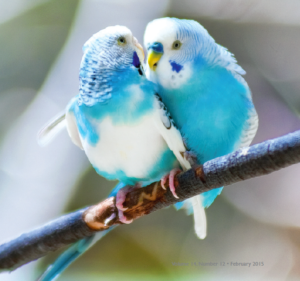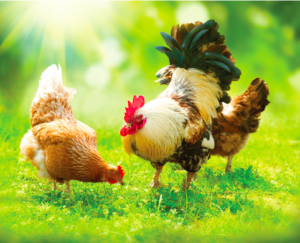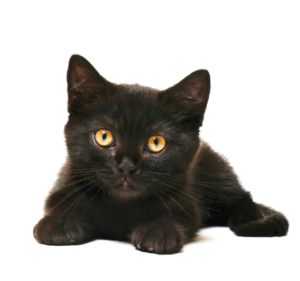Ah, love: life’s greatest mystery. Anyone who has fallen under its spell knows that its nature may be steadfast or fickle, its span lasting days or a lifetime, its object of affection eagerly reciprocal or distantly aloof. With love’s outcome so uncertain, is it any wonder that our forebears turned to superstition to divine their prospects for a long and successful romance?
Early 20th century anthropologists like Frazer and Malinowski tell us that superstition emerged from primitive societies’ attempts to understand the world and reduce anxiety about the unknown: by making connections between two random occurrences, like a personal experience and a natural event, such as the comings and goings of animals. To celebrate love month, here are some superstitions―from cultures across the world―pairing animals, romance, and weddings.
On the Wings of Love

Birds of different feathers are commonly viewed as harbingers of love omens. Women, in particular, are supposedly able to discern the kind of husband they are destined to marry based on the birds that they see. The 1852 edition of the Encyclopedia of Superstitions, Folklore, and Occult Sciences of the World has a lengthy list of birds and the defining characteristics of the husband associated with each.
For instance, English folk beliefs state that an unmarried woman may expect to marry a clergyman if she sees a blackbird while out on a walk during Valentine’s Day, while a redbreast(ed robin) or bunting augurs a sailor sweetheart. Spotting a goldfinch means that she will marry a millionaire, as opposed to spotting other yellow birds, which only symbolize a generally wealthy husband. Alas for bluebird seekers, a poor husband is in the cards, but those who see swallows will have a loving union, albeit one residing in a cottage.
A crossbill symbolizes a quarrelsome husband, while a wryneck―a bird belonging to the woodpecker family― means no husband at all. So perhaps it is best for ladies up and about to wish for a flock of doves on Valentine’s, since doves are equal opportunity portents of good luck. As we all know, doves continue to play a big part in traditional Filipino weddings, where they represent marital harmony and peace. That doves are generally monogamous―some subspecies like the turtledove, are even active co-parents―only adds to their auspicious reputation.
Those residing in communities with a dearth of bird variety may turn to Russian folklore for inspiration. On Christmas Eve, peasant girls place a hen in a dark room whose floor is littered with a variety of items. What the hen picks symbolizes one’s future husband: gold for wealth, bread for a good provider, and water for a drunkard.

For a less specific reading, do as the Germans and simply knock on the chicken coop on midnight or during Christmas Eve: if a rooster clucks, a marriage will take place in the coming year; if it’s a hen, try again once a year has passed. In Superstitions About Animals (1904), Frank Gibson notes that hearing the nightingale’s song is a good omen for lovers, a superstition noted in the works of prominent poets like Chaucer and Milton. These same gentlemen, Gibson adds, condemn the cuckoo as “a leud bird” or “a rude bird of hate”, perhaps because of the cuckoo’s practice of leaving its eggs in other nests and its subsequent association with unfaithfulness in marriage.
Four-Legged Fortune Tellers
A number of love superstitions are associated with our four-legged friends.

Black cats, believed mostly to be a bad omen on regular days, become harbingers of good fortune on one’s wedding day. Seeing a black cat is good luck, as opposed to seeing toads, pigs, hares and lizards run across a road. A sneezing household cat of any color is also thought to bring the bride good fortune on her wedding day―in certain Indian cultures, this extends to the groom, as long as he and his bride have a cat eat food of their left shoes a week before the wedding!
Dogs do not fare as well as bringers of love: a dog walking between a betrothed couple means that an argument is imminent. But if it is the eve of St. Andrews Day, do as the Germans do and listen to the sound of barking dogs: their area of origin will also be the home of one’s future husband.Larger mammals are also the subject of superstition.

Horses come with specific instructions: after counting off 60 white horses and 1 mule, the first man one shakes hands with will become one’s husband. If it’s leap year, count to a hundred white horses before pronouncing one’s self betrothed to the man one simply shook hands with. Meanwhile, in ancient Greece, bulls were viewed as fortunate in matters of love and fertility. Ancient Greek men believed that by wearing bull-shaped pendants, they would be able to harness the libido of the creature and become blessed with large families and abundant harvests.
Catching the Love Bug
Lovestruck people may do well to restrain from swatting any insects and spiders away, lest they drive away the good fortune associated with it. Ladybugs, for instance, are apparently viewed in some Asian traditions as a messenger of love: catch and release a ladybug, and it will fly to your true love and whisper your name in his or her ear. But before you send it off on its journey, make sure to check the number of spots on its back; this corresponds to the number of months it will take for the ladybug to make its way to your beloved.
In Japan, the butterfly is a symbol of young womanhood and to see two butterflies flitting around each other portends marital happiness. That said, a single black butterfly―in Japan, the Philippines, and other Asian countries―is also said to be a manifestation of a departed loved one’s soul.For a nervous bride, finding a spider on a wedding dress may be cause for concern, but folk beliefs foretell good fortune for the bride and groom. If all goes well, they can turn to cicada figures and Feng Shui practice to bring further joy in their marriage, aid conception, and open the door for folk traditions on pregnancy and childcare.
This appeared in Animal Scene’s February 2015 issue.






